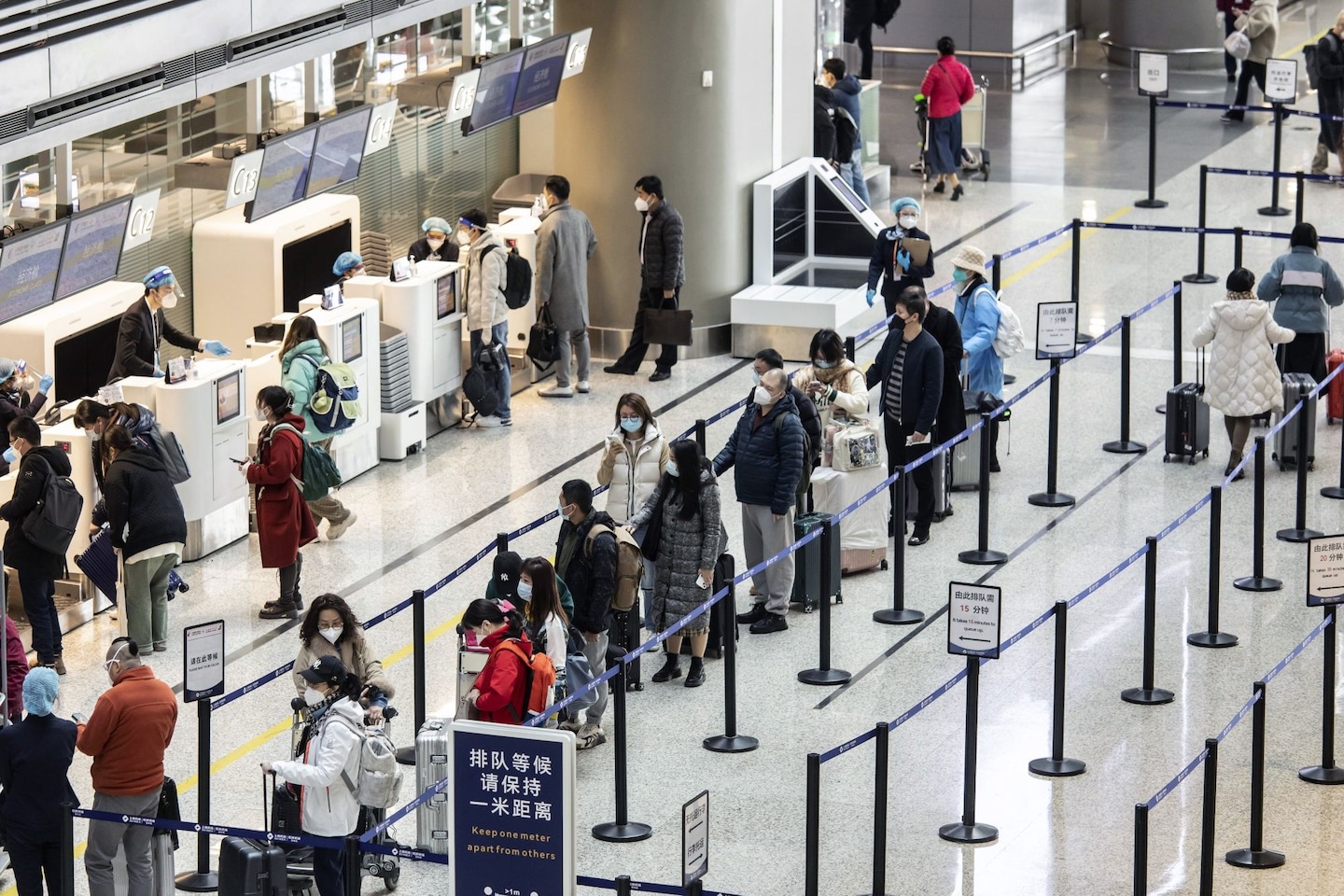Fifty percent of travelers on a Dec. 26 flight to Milan tested positive for the virus, with more than a third of passengers on a second flight that day also infected, according to RAI, the Italian public broadcaster. “The measure is essential to ensure surveillance and detection of possible variants of the virus in order to protect the Italian population,” Italian Health Minister Orazio Schillaci said in a statement.
The move to relax borders that had been closed for nearly three years comes as coronavirus infections are surging across China, and with U.S. officials increasingly worried about Beijing’s lack of transparency about the state of the pandemic there. Earlier this month, China stopped releasing a daily count of asymptomatic cases, and it recently offered covid-19 death tolls that are regarded as highly improbable.
The new controls, and China’s reluctance to offer data, recall an earlier stage of the pandemic. But even as China faces a domestic health catastrophe, these measures are also regarded by experts as likely to be ineffective at a time of widespread vaccine availability, and with covid-related travel restrictions all but abolished in much of the world.
“At the moment, there is no clear-cut evidence of benefit in restricting travel from any country or doing targeted surveillance,” said Paul Tambyah, the Singapore-based president of the International Society for Infectious Diseases. “We learned this … early in the pandemic when travel restrictions or surveillance measures were mostly instituted long after the virus had already taken root in the country imposing the restrictions.”
“There isn’t real-world scientific evidence to support these measures,” said Karen Grépin, a professor at the University of Hong Kong who specializes in global health policy. She added that the situation was very different from three years ago, with many countries having access to vaccines and with significant parts of their population already exposed to the virus.
The U.S. Centers for Disease Control and Prevention said Wednesday that pre-departure testing would help slow down virus transmission amid the possibility of new variants emerging. Italy also voiced similar concerns about identifying potential new variants being brought into the country.
China’s Foreign Ministry spokesman Wang Wenbin said Wednesday that measures to combat the pandemic should “be science-based and proportionate without affecting normal people-to-people exchange.”
Health-care experts noted that comparably strict measures did not stop the omicron variant from spreading last winter. Officials in Singapore and Australia — two countries that shut their borders during earlier stages of the pandemic — said this week that they had no plans to impose additional restrictions on travelers from China.
Tambyah acknowledged concern that the virus might evolve but said that “if this virus behaves like every other human virus in history, the new variants are likely to be more transmissible and less virulent.”
The omicron variants circulating in China “are already present in the rest of the world, and most countries now have a good immunity wall,” said physician David Owens, co-founder of the OT&P Healthcare medical practice in Hong Kong.
Experts said governments should prioritize vaccinations over requiring tests at their borders. As of early December, only about two-thirds of Chinese residents above age 60 had received a booster shot.
Beijing said last month that it would focus on getting boosters into the arms of its senior citizens, but it has so far relied on its domestically made vaccines, which many experts regard as less effective than Western mRNA shots.
Secretary of State Antony Blinken said last week that the United States was “prepared to continue to support people around the world, including in China, with this,” but that Beijing so far had not asked for that help.
The coronavirus situation in China is “extreme,” said the University of Hong Kong’s Grépin.
But she argued that singling out the country was not helpful. “Having this kind of penalty is not the solution to increasing cooperation globally as we move forward,” she said.



